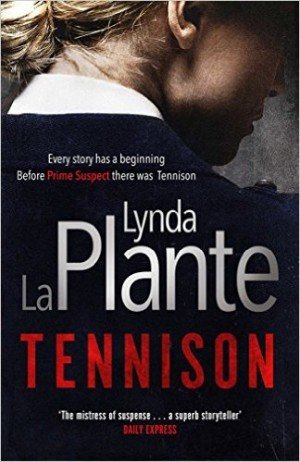Jane Tennison, a young policewoman fresh out of Hendon Training College, makes the daily journey from her parents’ comfortable flat in Maida Vale to Hackney. It’s a grim place and resolutely working class. Being a woman police constable in 1972 – the gender distinction was only abolished in 1999 – was very much a reflection of women’s status in the wider world. WPCs were expected to make coffee, fetch sandwiches from the canteen, and generally tend to the needs of their male counterparts.
As things unfold in Tennison, we’ll get to experience the character’s earliest days on a male-dominated force, before she became the leading CID detective seen in Lynda La Plante’s hugely successful television series Prime Suspect.
When the body of a teenage girl is found in a children’s playground, Tennison becomes involved in the search for her killer. DCI Len Bradfield is pretty much as macho as his other male colleagues, but he is drawn to the young WPC’s natural intelligence, serious attitude, and attention to detail. Her nemesis in this story is the chauvinist Sergeant Harris who resents the time Tennison spends away from what he sees as her real duties – cleaning up after sick prisoners, or washing cups and saucers in the rest-room. The hunt for the girl’s murderer takes many a twist and turn, but another case – that of a suspected plan to rob a City bank – draws Tennison and her senior colleagues into a dramatic collision with a hardened criminal gang, for whom extreme violence is an occupational hazard.
Picturing characters in the mind’s eye is all part of the joy of reading, and with a much older Jane Tennison memorably portrayed by Dame Helen Mirren on television, how does La Plante reveal the younger version? For me, I was lucky enough to see Helen Mirren as Lady Anne in the 1970 production of Richard III at Stratford, so the young Jane Tennison is easy to imagine.
Character wise, she is very intelligent, conscientious and responsible, but longing to break away from her straight-laced upbringing. Despite her very evident physical charms, which are cleverly outlined as she struggles with a hideous bridesmaid’s dress on the eve of her sister’s wedding, she is not sexually experienced, and has no time for flirting. Beneath her seriousness is a passionate, but slightly vulnerable young woman who has to adapt quickly to the rough world of a 1970s police station. The events which take place in this book leave their mark; they leave her sadder, but stronger.
I have to confess that although I loved the original Prime Suspect TV series, I have never felt motivated to read any of Lynda La Plante’s books until now. I regret to say this may be partly through literary snobbishness convincing me that the novels stacked by the till in Sainsbury’s were not for me. After finishing this book, I have to say that loss has been mine. La Plante is a brilliant storyteller. She writes simply, without any exotic flourishes or showboating, but her style is addictive.There is psychological insight without pretension, and a narrative drive which will just keep you turning the pages.
At just short of 600 pages, this is a big read, but it flies by in no time. For those of who admired the mature Jane Tennison on TV – at least before she succumbed to her demons – the book sets the scene perfectly. This said, Tennison works perfectly well in its own right. The period details are perfect, and the dramatic events towards the end of the story had me putting off doing anything else until I finally reached the end.
For another excellent novel about women officers breaking into a male-dominated force, see Karin Slaughter’s Cop Town, set in Atlanta in 1974.
Simon & Schuster
Print/Kindle/iBook
£9.99
CFL Rating: 5 Stars
